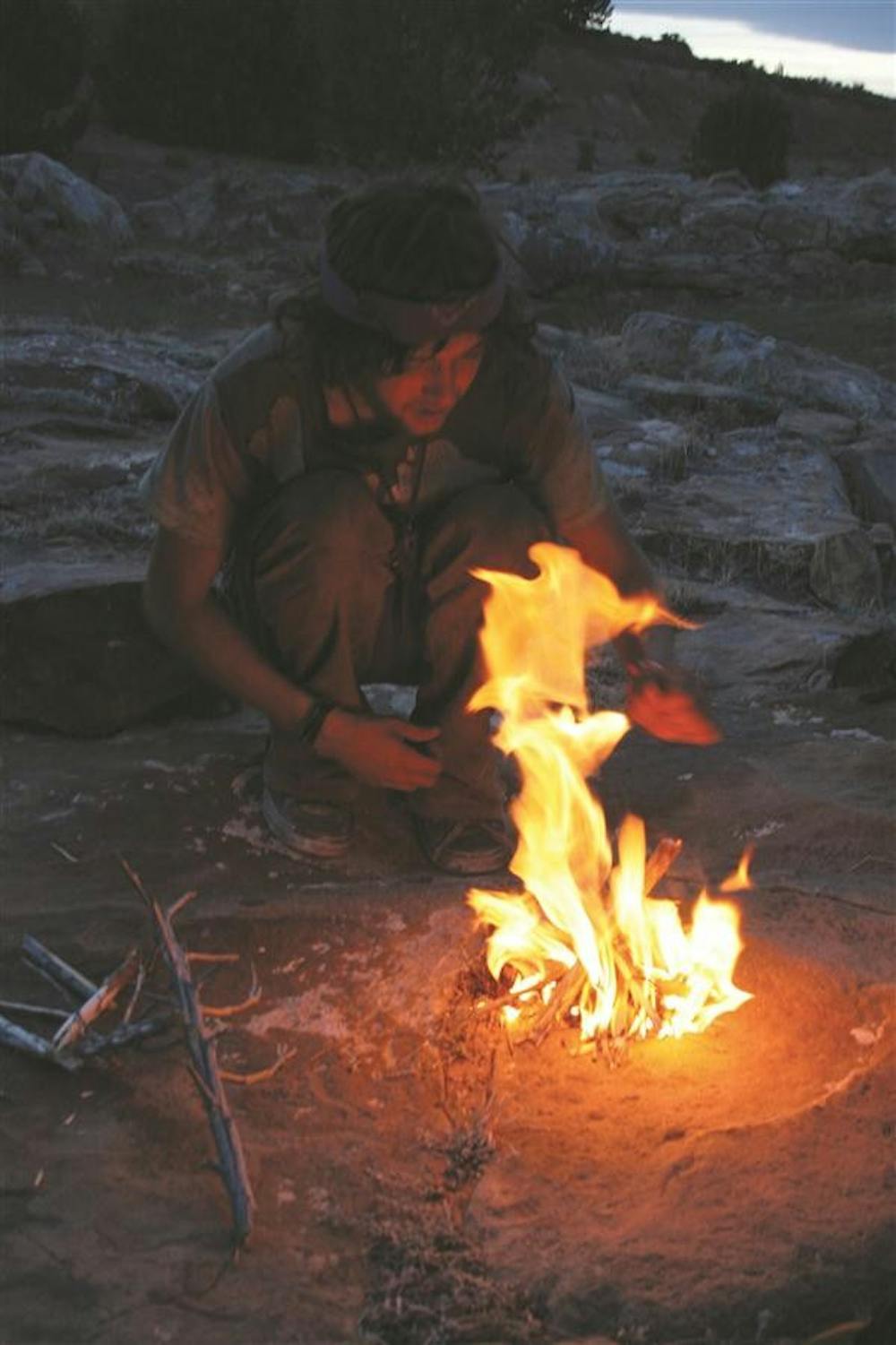What I learned from Bloomington’s homeless community
I’ve slept on a desert in New Mexico, granite plateaus in California, and a spruce tree mattress in North Carolina. I’ve awoken to a hungry black bear and warm light peering through a frozen car. During these times, I had no residence.
I remember the places where I was hungry and lonely. The places where I endured hardship become my stories, and I have allowed them to make me the person I am.
For me, home is somewhere out West. I’m not nostalgic for a house with walls and floors and a ceiling. I think the people I meet on my trips – hitchhikers, train hoppers, and world travelers – feel the same. I am never homeless because I carry a concept of home with me, whether or not I have a roof over my head. What about the people who hang out on the streets of Bloomington all day? Are they homeless? I went to find out.
When I met Andy Calloway, he was sitting across from the First Presbyterian Church on Sixth Street. His wife, Cathy, was next to him. They were there for the free food the church serves once every Saturday.
Andy first experienced homelessness when he was 13 years old. His parents kicked him out of their house, he says, so he crafted his own home: a carved-out spot in a 1,500-pound barrel of hay.
He went to Panama City, Fla., and slept by a McDonald’s dumpster. He worked several jobs around the country, but just long enough to buy a bus or train ticket to another state or job. Home was transient as the now 32-year-old drifted from place to place. By now, he says he’s seen nearly half the states.
After he married Cathy, the two of them left their trailer in Greene County to visit family. When they returned, their meth-addicted friends who stayed in the couple’s trailer had sold their car and possessions. They would have to survive the winter being destitute.
Last winter Andy and Cathy lived with no running water, no power, and no transportation. They lived off the deer Andy hunted. He was trained by the best, he says, a Green Beret sniper who served in Vietnam. The couple would wake to find the water frozen. They were getting by with a water distillery and a septic tank Andy made, but things went south when he tried fishing in a quarry. He stood on a large rock and leaned over to examine the depth of the quarry. The rock gave. Andy jumped back and grabbed a sapling. The roots didn’t hold and he fell. The hospital pinned his hand back together, but he no longer has feeling or movement in it.
The homelessness Andy first experienced at 13 is different from what he experiences today. He has regular shelter and what he and Cathy call a family. A lone drifter even asked if he could join them. His style of living is different than what most of us consider a home, but at the most basic level, we all are searching for a place to sleep and people we care about. Andy and Cathy have that.
There are many words that can be used to label people, and society generally frowns on them. However, “bum,” “homeless,” and “hobo” have become negative words people use casually. We need to understand the differences between homeless and street people. The homeless long for a house, and the street people make a home on the street. These street sleepers mix living off the generosity or stupidity of others with whatever skills they’ve acquired (like dumpster diving). If you are going to judge them, assume they are judging you with your frat hoodie, cell phone, and designer jeans.
C’mon, cough up that 47 cents already.
Our nation was founded on people searching for a home. I enjoy living like the founders of our nation. The pioneers slept in the dirt, too. Because of them, I have more than 1 million square miles of protected land where I can get lost.
The Calloways don’t have their own address, but does that make them homeless? Cathy would tell you no. She would tell you home is more than a building.
“Home is where you are,” Cathy says, sitting street-side.
We leave home because we want to learn through experience. But our home does not leave us. So leave! Spontaneity is the last thread of innocence I have left, and I nurture it by living my life where I can pick up and leave at any moment. My world is not so big, and my life not so short. I will let the path I walk be my home. The rocks can be my walls, the grass my floor, the stars my ceiling.






